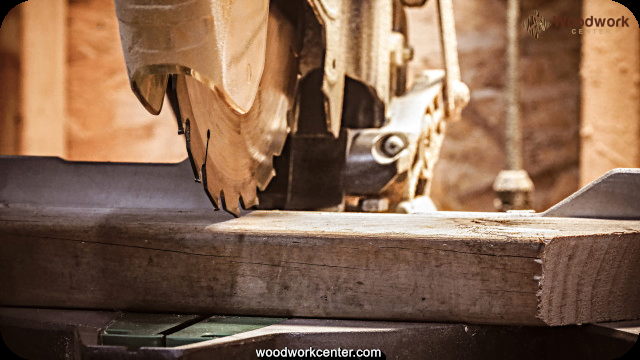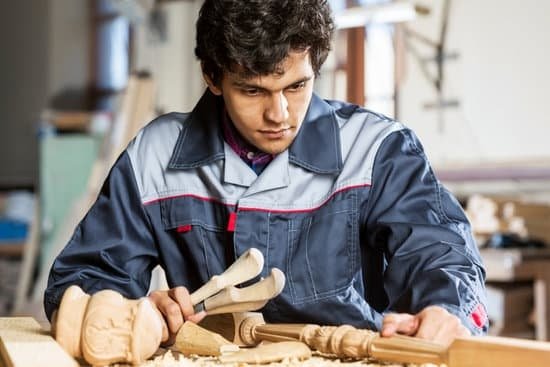Woodworking is a craft that demands precision, skill, and creativity. To bring your woodworking projects to life, having the most essential woodworking tools is crucial. From measuring and marking tools to cutting tools and power tools, each piece plays a significant role in ensuring the success of your projects. Whether you’re a seasoned woodworker or just starting out, knowing the importance of having the right tools can make all the difference in the final outcome of your creations.
Having the correct woodworking tools not only enhances your efficiency but also helps prioritize safety in the workshop. No matter how skilled you are, safety gear should always be at the top of your list when it comes to woodworking.
From protective goggles to ear defenders, these items are essential to prevent accidents and injury while working with sharp tools and heavy machinery. Investing in quality safety equipment is a small price compared to the protection it provides for your most valuable assets – yourself and your hands.
In this article, we will delve into various categories of woodworking tools, from measuring and marking tools for accuracy to cutting tools like saws and chisels for precision cuts. We will also discuss joinery tools for creating strong connections between pieces of wood, as well as sanding and finishing tools for giving your projects a professional look.
Additionally, we will explore power tools that can significantly increase efficiency and productivity in your workshop. So grab your safety gear and let’s dive into the world of the most essential woodworking tools every craftsman should have at their disposal.
Safety Gear
When it comes to woodworking, safety should always be a top priority. One of the most essential woodworking tools that every woodworker should have in their workshop is proper safety gear. This includes items such as safety goggles, ear protection, dust masks, and work gloves.
Safety goggles are crucial for protecting your eyes from flying debris and sawdust, while ear protection helps prevent hearing damage from loud power tools. Dust masks are essential for protecting your lungs from harmful dust particles, especially when sanding or using power tools that generate a lot of dust. Lastly, work gloves provide an extra layer of protection for your hands while handling sharp tools or rough materials.
In addition to these basic safety gear items, it is also recommended to invest in a quality respirator for added protection against harmful fumes and chemicals when working with finishes or solvents. Respirators with replaceable cartridges can filter out various toxins and contaminants to keep you safe while woodworking.
Another important safety tool to have in your workshop is a fire extinguisher. Accidents can happen, especially when working with power tools or flammable materials, so having a fire extinguisher readily available can help prevent small incidents from turning into disasters.
A study conducted by the Centers for Disease Control and Prevention (CDC) found that over 4,000 woodworking-related eye injuries occur each year in the United States alone. This alarming statistic underscores the importance of wearing proper safety gear while woodworking. By investing in the most essential woodworking tools like safety goggles, ear protection, dust masks, and other protective equipment, woodworkers can create a safer working environment and reduce the risk of accidents and injuries in the workshop.
| Safety Gear Item | Importance |
|---|---|
| Safety Goggles | Protection against flying debris and sawdust |
| Ear Protection | Prevention of hearing damage from loud power tools |
| Dust Masks | Protection for lungs against harmful dust particles |
| Work Gloves | Extra layer of protection for hands while handling tools or materials |
Measuring and Marking Tools
Another essential tool in woodworking is the marking gauge, which helps woodworkers create consistent lines parallel to an edge. This tool is especially useful when making precise layouts for joinery or other intricate woodworking tasks. For accurate measurements of inside dimensions, outside dimensions, and depths, a caliper can be indispensable. It provides precise readings that are vital for achieving the desired accuracy in woodworking projects.
Furthermore, having a good quality level is crucial for ensuring that wood surfaces are flat and even. Levels come in various sizes and types, such as bubble levels or laser levels, offering woodworkers flexibility in their choice based on project needs. Overall, investing in high-quality measuring and marking tools is essential for any woodworker looking to achieve professional results in their woodworking projects.
| Tools | Importance |
|---|---|
| Tape Measure | Allows precise measurement of lengths and widths |
| Combination Square | Ensures accuracy of right angles and straight lines |
| Marking Gauge | Helps create consistent lines parallel to an edge |
Cutting Tools
When it comes to woodworking, having the right cutting tools is crucial for achieving precision and efficiency in your projects. From making intricate cuts to shaping wood surfaces, a selection of saws, chisels, and planes are essential for every woodworker. Each tool serves a specific purpose, allowing you to create various designs and achieve different finishes in your woodworking projects.
Hand Saws
Hand saws are versatile tools that come in different types such as crosscut saws, rip saws, dovetail saws, and more. Crosscut saws are ideal for making cuts across the wood grain, while rip saws are designed for cutting along the grain. Dovetail saws are perfect for creating joints with tight angles and delicate details. Having a selection of hand saws ensures that you can tackle a wide range of cutting tasks with ease and precision.
Chisels
Chisels are indispensable tools for shaping wood and creating intricate details in your woodworking projects. They come in various sizes and shapes to accommodate different tasks, from paring chisels for precise trimming to mortise chisels for cutting square holes. It’s important to keep your chisels sharp and well-maintained to ensure clean cuts and accurate results. Investing in high-quality chisels will not only enhance your woodworking skills but also improve the overall quality of your work.
Planes
Planes are essential tools for smoothing rough surfaces, flattening wood, and shaping edges. Bench planes such as jack planes, smoothing planes, and block planes are commonly used in woodworking projects of all levels. They help achieve a flat surface before sanding or finishing the wood.
Rabbet planes and shoulder planes are specialized tools used for creating specific joints or cutting shoulders with precision. Including a variety of planes in your collection will enable you to refine your pieces effectively and bring out their true beauty through meticulous craftsmanship.
Joinery Tools
Joinery is a crucial aspect of woodworking, as it involves creating strong and durable joints that hold pieces of wood together. To achieve high-quality joinery, woodworkers need the right tools for the job. Here is an overview of some essential joinery tools that every woodworker should have in their workshop:
- Woodworking Clamps: Wood clamps are essential for holding pieces of wood together firmly during glue-ups or while working on joinery projects. They come in various sizes and types, such as bar clamps, pipe clamps, and spring clamps.
- Dovetail Saw: A dovetail saw is specifically designed for making precision cuts when creating dovetail joints, which are known for their strength and aesthetics. Its fine teeth and stiff blade allow for accurate cuts in both soft and hardwoods.
- Chisels: Chisels are versatile hand tools used for trimming, shaping, and cleaning up joints. They come in various sizes and shapes, with beveled edges that allow woodworkers to make precise cuts and create clean edges in their joinery work.
In addition to these tools, woodworkers may also consider adding a few more specialized tools to their collection, depending on the type of joinery projects they frequently work on. For example:
- Biscuit Joiner: A biscuit joiner is a power tool that cuts semi-circular slots into pieces of wood to insert biscuits (small wooden inserts) that help align and strengthen joints. This tool is commonly used in cabinetmaking and furniture construction.
- Router: Routers can be equipped with various bits to cut different types of joints, such as dadoes, rabbets, and mortise-and-tenon joints. They provide versatility in joinery work by allowing woodworkers to create intricate shapes and designs.
By having the right combination of hand tools and power tools for joinery work, woodworkers can ensure the structural integrity and longevity of their woodworking projects. Investing in high-quality joinery tools will not only improve the overall quality of craftsmanship but also provide greater efficiency and precision in woodworking tasks involving creating strong joints.
Sanding and Finishing Tools
Sanding Tools
One of the most essential woodworking tools for achieving a smooth and flawless finish on your projects is a good quality sander. There are various types of sanders available, including random orbit sanders, belt sanders, and palm sanders. Each type serves a different purpose and is ideal for different stages of the finishing process. Whether you need to remove rough edges or achieve a glass-like finish, having the right sander in your toolbox is crucial.
Finishing Tools
In addition to sanding tools, having the right finishing tools is vital for adding the final touches to your woodworking projects. Items such as brushes, rollers, and sprayers are necessary for applying stains, paints, varnishes, and other finishes to protect and enhance the beauty of your woodwork. The quality of your finishing tools can greatly impact the overall look and durability of your projects, so investing in high-quality brushes and applicators is key.
Protective Finishes
When it comes to protecting your woodworking projects from wear and tear, using protective finishes is essential. This includes items like polyurethane, shellac, lacquer, or wax that not only add shine but also provide a barrier against moisture and other elements that can damage wood over time.
Applying these protective finishes correctly with the right tools will ensure that your hard work stands the test of time and maintains its beauty for years to come. Making sure you have all these sanding and finishing tools in your workshop will guarantee professional-looking results on all your woodworking projects.
Power Tools
When it comes to woodworking, power tools can greatly enhance efficiency and precision in your projects. Having the right electric tools can make tasks easier and help you achieve professional results. Here are some of the most essential power tools that every woodworker should have in their workshop:
- Power Drill: A versatile tool for drilling holes, driving screws, and even mixing paint or drywall compound.
- Orbital Sander: Ideal for smoothing surfaces and removing old finishes or paint quickly and effectively.
- Circular Saw: Great for making straight cuts in large pieces of wood, plywood, or other materials.
In addition to these must-have power tools, investing in a good quality jigsaw can be beneficial for cutting curves and intricate shapes. A table saw is also a valuable addition to any woodworking shop for making accurate rip cuts and crosscuts. With the right combination of power tools, you can tackle a wide range of woodworking projects with ease.
Whether you are a beginner or an experienced woodworker, having the most essential woodworking tools at your disposal is crucial for successful projects. Power tools not only save time and effort but also allow for greater precision and accuracy in your work. By incorporating these electric tools into your workshop setup, you can take your woodworking skills to the next level and enjoy the process of creating beautiful pieces of furniture or decor.
Tool Storage
Properly organizing and storing woodworking tools is essential to ensure they remain in good condition and have a longer lifespan. By taking the time to organize your tools, you can save yourself valuable time searching for the right tool when working on a project. Additionally, proper storage can help prevent damage to your tools, ultimately saving you money in the long run.
One of the first steps in organizing your woodworking tools is to designate specific areas or sections for different types of tools. For example, you may want to have a designated area for cutting tools such as saws, chisels, and planes, another area for measuring and marking tools, and yet another area for joinery tools. Organizing your tools in this manner can help you easily locate the tool you need when working on a project.
Investing in quality tool storage solutions, such as tool chests, cabinets, or wall-mounted organizers, can also help keep your woodworking tools organized and protected. Storing your tools properly can prevent them from getting damaged or dull due to improper storage conditions.
Consider using foam inserts or custom-made racks to keep your tools secure and in good condition. By taking the time to organize and store your woodworking tools properly, you can prolong their lifespan and ensure they are always ready for use when needed.
Conclusion
In conclusion, having the right woodworking tools is crucial for any woodworker to successfully complete their projects with accuracy and precision. From safety gear to power tools, each type of tool plays a vital role in ensuring efficiency and quality craftsmanship in woodworking. By investing in the most essential woodworking tools, woodworkers can enhance their skills, improve their workflow, and ultimately create beautiful pieces that stand the test of time.
Safety gear is the first priority for any woodworker, including protective goggles, ear protection, and dust masks to safeguard against potential hazards. Measuring and marking tools like tape measures and marking gauges are essential for ensuring accurate cuts and dimensions in woodworking projects. Cutting tools such as saws, chisels, and planes provide versatility for a variety of tasks, while joinery tools like routers and doweling jigs are necessary for creating strong and durable joints.
Additionally, sanding and finishing tools play a crucial role in achieving smooth surfaces and applying finishes that enhance the beauty of the wood. Power tools like table saws, drills, and routers can significantly improve efficiency and precision in woodworking projects.
Proper organization and storage of these tools are also important to prolong their lifespan and maintain a clutter-free workspace. Overall, by equipping themselves with the most essential woodworking tools, woodworkers can elevate their craft to new heights and enjoy the process of creating stunning pieces that showcase their skills and dedication to craftsmanship.
Frequently Asked Questions
What Is the Most Important Tool in Woodworking?
The most important tool in woodworking is arguably the chisel. It is a versatile tool that can be used for shaping, carving, and even creating joinery in woodworking projects. A sharp chisel is essential for precise and clean cuts, making it a must-have tool for any woodworker.
What Is the Number One Tool in Woodworking?
The number one tool in woodworking is often considered to be the table saw. This powerful tool allows woodworkers to make accurate and straight cuts quickly and efficiently. From ripping boards to cutting dados, a table saw is an indispensable tool in any woodworking shop.
What Tools Do You Need to Start Woodworking?
To start woodworking, you will need a few essential tools such as a hammer, tape measure, combination square, handsaw, and screwdrivers. These basic hand tools will help you with measuring, cutting, marking, and assembling your wood projects.
As you progress in your woodworking journey, you may consider adding power tools like a drill, circular saw, or random orbital sander to your collection. Remember to always prioritize safety by wearing appropriate gear like goggles and ear protection while working with tools.

Hi everyone! I’m a woodworker and blogger, and this is my woodworking blog. In my blog, I share tips and tricks for woodworkers of all skill levels, as well as project ideas that you can try yourself.





